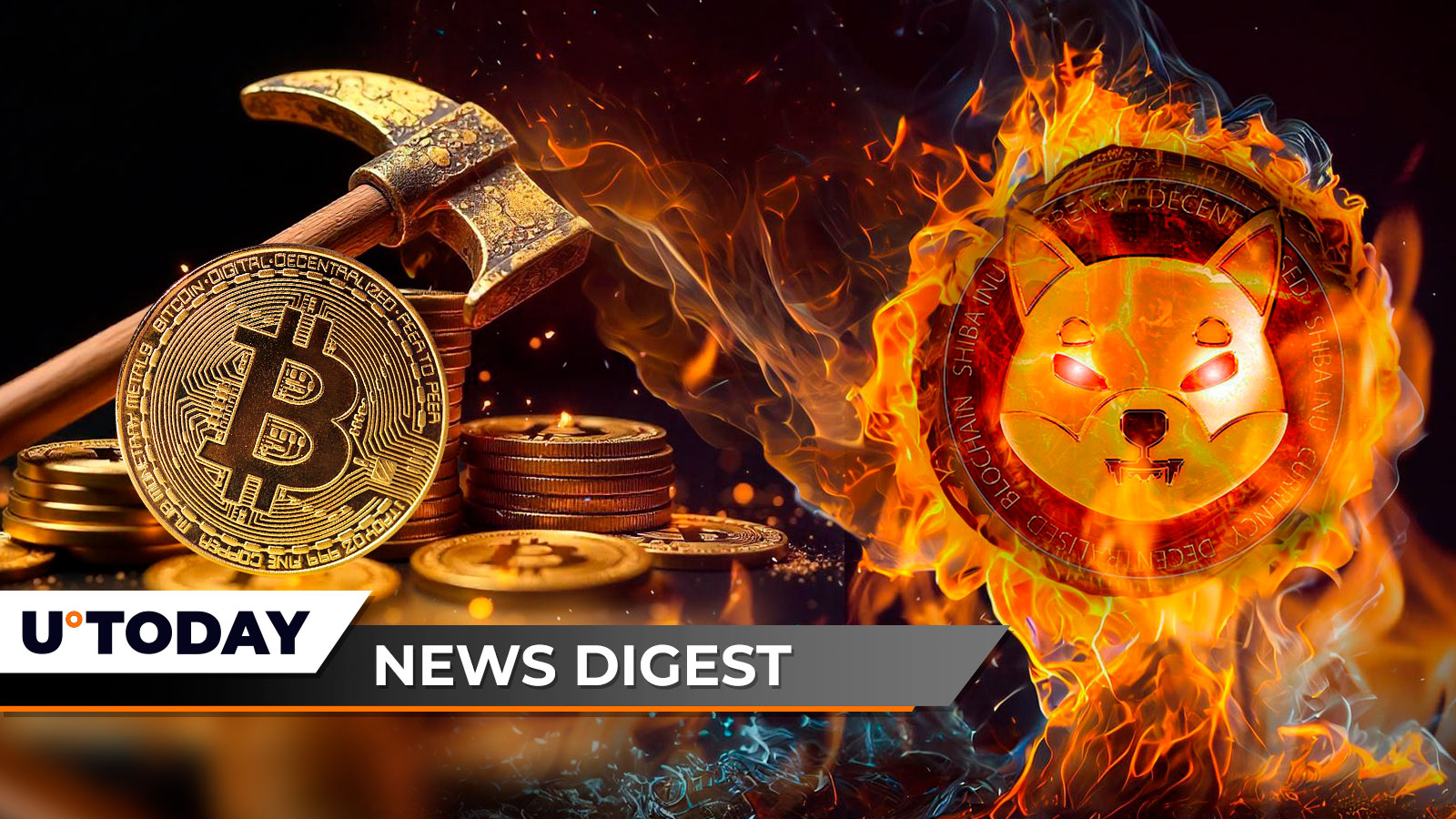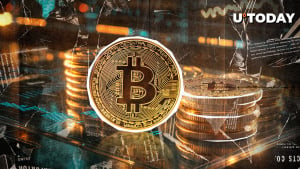$96,000 per Bitcoin for Miners, Shiba Inu Soars 6,153% in Weekly Burns, 'Rich Dad Poor Dad' Author Kiyosaki Warns Banking Crash Has Started: Crypto News Digest by U.Today
11/04/2024 22:29
Check out the latest crypto news over the first weekend of November with U.Today's news digest!

Disclaimer: The opinions expressed by our writers are their own and do not represent the views of U.Today. The financial and market information provided on U.Today is intended for informational purposes only. U.Today is not liable for any financial losses incurred while trading cryptocurrencies. Conduct your own research by contacting financial experts before making any investment decisions. We believe that all content is accurate as of the date of publication, but certain offers mentioned may no longer be available.
Here are the top three news stories over the past weekend brought to you by U.Today.
$96,100 per Bitcoin (BTC) for miners: What's happening?
As stated in a recent report by CoinShares analyst James Butterfill, the average cost of producing BTC climbed to $96,100 for publicly traded miners; this figure includes noncash expenses, such as depreciation and stock-based compensation. Cash costs have also increased, reaching $49,500 per BTC in Q2, 2024, up from $47,200 in Q1, as mining conditions are becoming more complex and require greater capital investment. Despite these complications, miners still continue to expand their infrastructure as they hope for a potential rise in Bitcoin prices. However, operational difficulties persist, especially in obtaining affordable credit and coping with high interest rates following events like the FTX collapse. To navigate these challenging times, leading mining companies are seeking innovative solutions, including fixed-rate power contracts and the use of artificial intelligence. They are also under pressure to enhance cost efficiency and diversify their revenue streams ahead of the next halving.
Shiba Inu soars 6,153% in weekly burns, how much SHIB was burned?
According to data provided by Shibburn, over the past week, Shiba Inu has experienced an astonishing 6,153% increase in its burn rate. Thanks to coordinated efforts from within the Shiba Inu community and various ecosystem projects, a total of 5,761,510,009 SHIB tokens were burned during this period. A significant contributor to this surge was a major burn event on Nov. 1, which accounted for 5,612,878,479 SHIB tokens being burned across six transactions. Despite these large-scale burns, no SHIB tokens were burned in the previous 24 hours, and the token has been declining since reaching $0.00001982 on Oct. 29. Currently, Shiba Inu is struggling to maintain critical support at $0.000017, trading at $0.00001711, per CoinMarketCap.
"Rich Dad Poor Dad" author Kiyosaki warns: "Banking crash begun"
Robert Kiyosaki, world-famous financial educator and author of “Rich Dad Poor Dad,” has recently taken to X platform to issue a stark warning about the U.S. banking sector. In his X post, Kiyosaki wrote that the "banking crash" has already begun, marked by the recent closure of an Oklahoma bank. He expressed concerns that both the bond market and commercial real estate are at high risk of following the banking industry into a downturn, reinforcing his long-standing skepticism about the stability of the financial system. To preserve wealth amid the current turmoil on the financial markets, Kiyosaki believes, people should turn to investing in limited-supply assets, such as gold, silver and Bitcoin, which he refers to as the "people's money" due to their decentralized nature.

